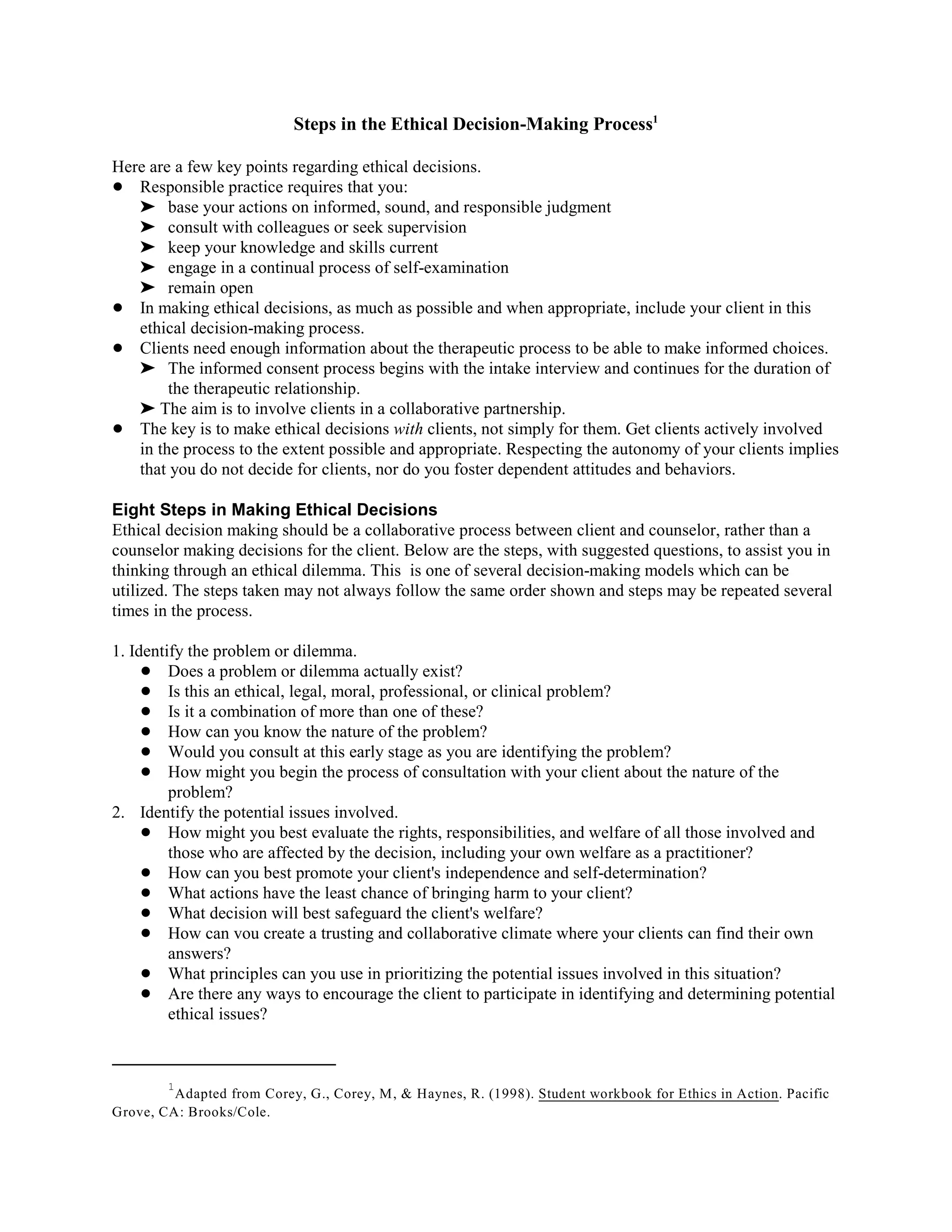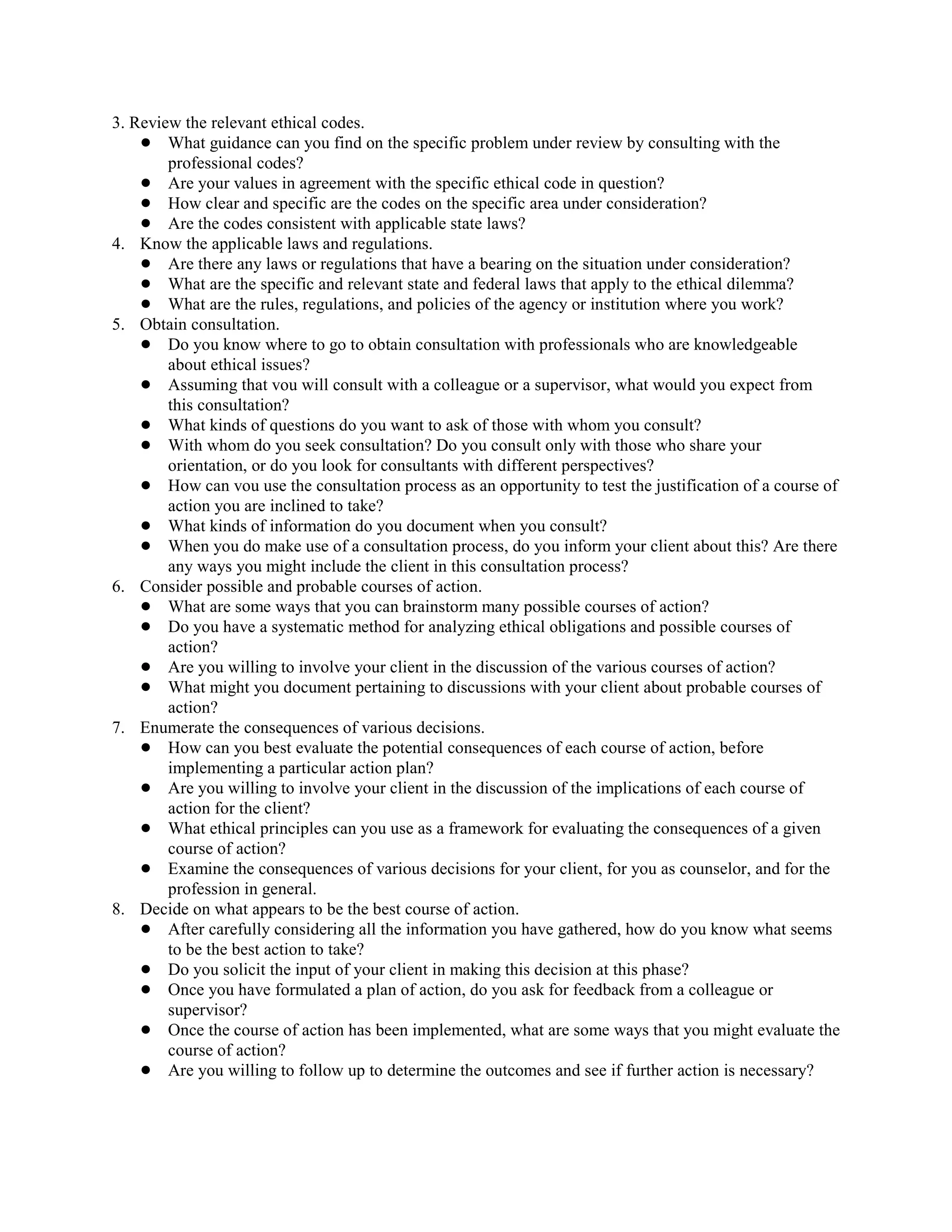The document outlines an 8-step ethical decision-making process for counselors to follow when facing an ethical dilemma. The key aspects of the process are: 1) identifying the problem or dilemma and whether it is ethical, legal, clinical or a combination; 2) identifying the potential issues involved and how they may impact all parties; 3) reviewing relevant ethical codes and laws to understand applicable guidance and restrictions; 4) obtaining consultation from knowledgeable colleagues to test solutions; 5) considering probable courses of action while involving the client; 6) evaluating the consequences of each action; 7) deciding on the best course only after careful consideration and input from the client; and 8) following up on the decision to evaluate outcomes and need for further action

